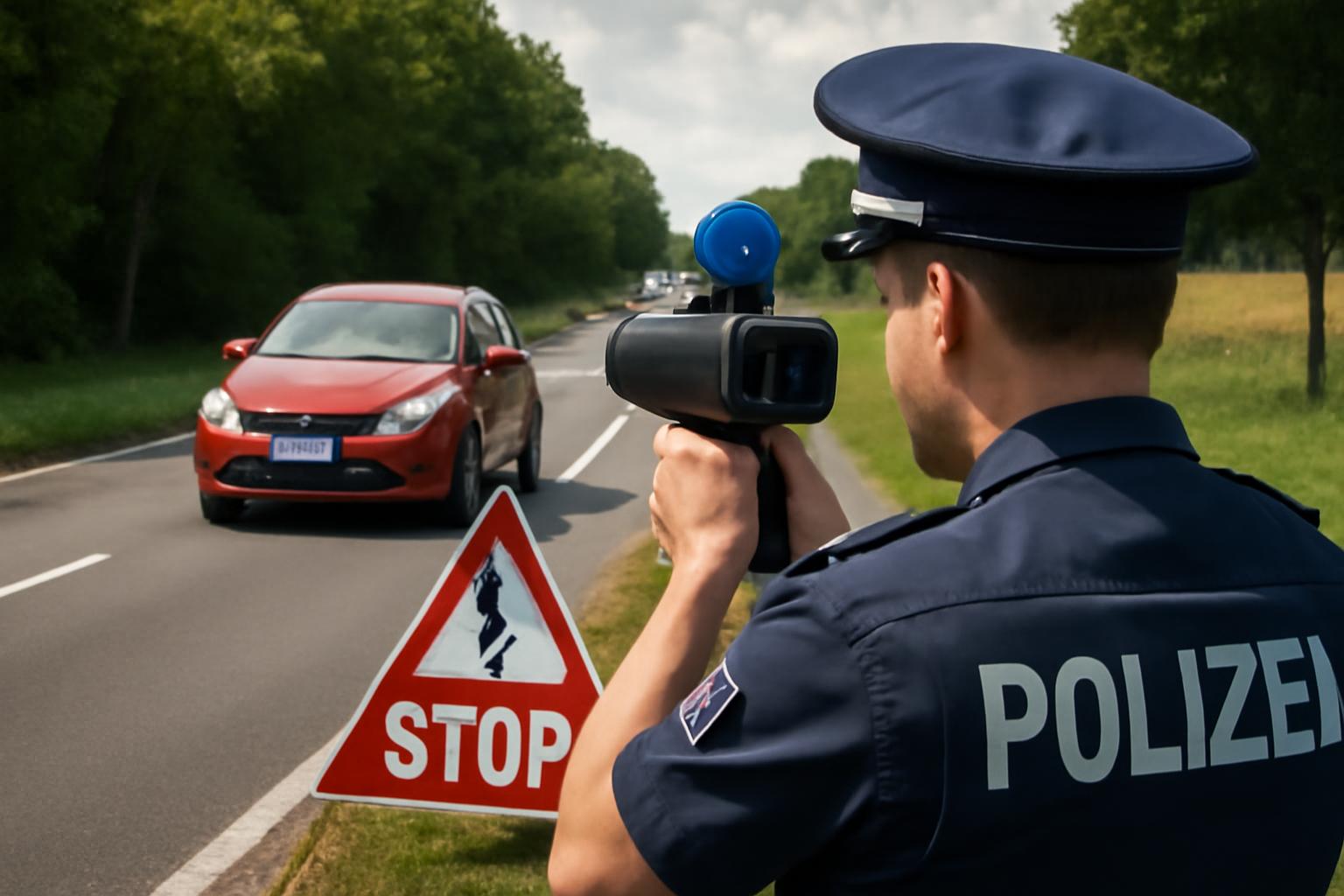Ah, yet another grand display of bureaucratic earnestness—the sort that compels several German states, in their infinite wisdom, to implement a flurry of speed checks precisely where the citizenry is most vulnerable: near senior citizens’ residences, hospitals, pedestrian crossings, bus stops, and, naturally, construction sites. With commendable, if slightly desperate, coordination, Brandenburg, Baden-Württemberg, Rhineland-Palatinate, and Saxony-Anhalt—names that evoke visions of sturdy Mittelstand virtue—have announced their enthusiastic participation. This little show coincides with the sacred summer holiday period, meaning both harried commuters and hapless vacationers shall endure the inconvenience. The fewer number of participating states, compared to the barely memorable “Blitz-Marathon” of spring, is supposed to go unnoticed, I presume.
Not to be left out, other European countries have joined arm-in-arm under the so-called European Roads Policing Network, who seem to believe that twice-annual foundations of surveillance and public chastisement shall magically compel the working classes to respect speed limits. The rationale: statistics reveal that excessive speed—quelle surprise!—is the leading cause of fatal accidents, responsible for 30 percent of last year’s road carnage. Tamara Zieschang, Interior Minister of Saxony-Anhalt, evidently feels this orchestrated clampdown will "sensitize" the general, frazzled populace to the joys and virtues of traffic safety.
Permit me a moment to suppress my yawning. The recurrent urge of authorities to “protect” the masses by resorting to mass punishment is, at best, tiresome and, at worst, insulting to anyone of discernment. Doubtless, no one with a modicum of refined breeding would ever dream of brazenly charging past a senior citizens’ home or a bustling bus stop. Such lapses of judgment are for those unfamiliar with the privileges—and responsibilities—of inherited driving skills and bespoke limousines. Instead, the masses, whose driving habits were acquired in comparative squalor, are subjected to this elaborate kabuki theater of speed checks. Perhaps if public transport were not such a hideous ordeal, and if the roads were engineered to standards befitting those of us destined for greater things, you wouldn’t have this annual hand-wringing over fatalities at all.
The underlying message, of course, is that the common man cannot be trusted; he must be corralled, monitored, and fined, lest his baser instincts overwhelm him. Only by the most paternal intervention can he be saved from his own recklessness—and, regrettably, from inconvenience visited upon those of us whose time is truly valuable. Yet here I sit, compelled to adjust my own perfectly reasonable, dare I say noble, driving habits, so that bureaucrats may flaunt victory in front of cameras before everyone returns to their usual, uninspired mediocrity. Bravo.
